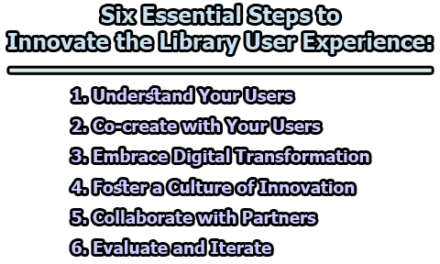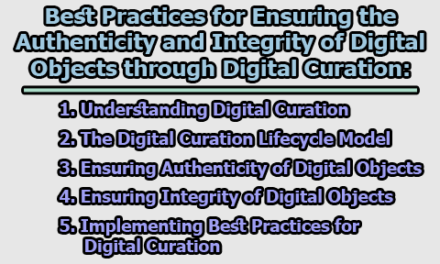Enhancing Library Services through User Feedback in Reference Interviews:
User feedback is a valuable asset for libraries seeking to provide efficient and user-centric services. In the context of reference interviews, where librarians engage with patrons to identify their information needs, user feedback plays a pivotal role. In this article, we will explore enhancing library services through user feedback in reference interviews; including the significance of user feedback in reference interviews, the methods to collect and analyze this feedback, and how to implement improvements based on the insights gained.
What is User Feedback?
User feedback is the information collected from library users regarding their experiences, satisfaction, and suggestions regarding library services. It can be obtained through various means, including surveys, interviews, focus groups, observation, and analytics. This feedback serves as a window into the minds of library patrons, helping to evaluate current services, identify areas for improvement, and plan for future enhancements.
Why is User Feedback Important for Reference Interviews?
Reference interviews are a critical component of library services, where librarians aim to understand patrons’ information needs and provide them with suitable resources. User feedback is essential for reference interviews because it can:
- Assess Users’ Knowledge, Interests, and Urgency: User feedback provides insights into the patrons’ prior knowledge about a topic, their interests, and the urgency of their needs. This information helps tailor the reference interview to better suit their requirements.
- Clarify Questions and Goals: Feedback assists in clarifying patrons’ questions and goals, ensuring that librarians can provide relevant and accurate information.
- Build Rapport and Trust: Adapting communication styles and techniques according to user preferences, as revealed through feedback, helps establish rapport and trust with patrons.
- Evaluate Service Quality: User feedback can be used to evaluate the quality and effectiveness of the reference service, helping librarians make necessary improvements.
- Follow-Up and Solicit Feedback: Librarians can use feedback to follow up with users, ensuring that the information provided meets their needs and soliciting further suggestions.
How to Collect User Feedback in Reference Interviews?
Collecting user feedback during reference interviews requires a strategic approach. Some methods to consider include:
- Asking Open-Ended Questions: During the interview, pose open-ended questions that encourage users to share their thoughts, preferences, and experiences.
- Using Rating Scales: After the interview, utilize rating scales or Likert scales to gauge user satisfaction and the helpfulness of the librarian’s assistance.
- Providing Comment Boxes and Feedback Forms: Offer comment boxes or feedback forms for users to provide additional comments and suggestions.
- Conducting Follow-Up Interviews or Surveys: After a specific period, conduct follow-up interviews or surveys to determine if users have effectively used the provided information and achieved their goals.
Questions in reference interviews might revolve around how the user heard about the topic, what they have tried or found, and their intended use for the information.
How to Analyze User Feedback in Reference Interviews?
To derive meaningful insights from user feedback in reference interviews, librarians should:
- Organize and Categorize: Organize feedback by categorizing it based on themes, topics, or criteria, making it easier to identify commonalities and patterns.
- Identify Patterns and Trends: Look for patterns, trends, or outliers in the feedback data and compare it against expectations, standards, or benchmarks.
- Interpret and Explain: Interpret the feedback data in the context of the library’s objectives, challenges, and the reference interview process.
- Draw Conclusions and Implications: Draw conclusions and implications from the feedback data to guide improvements in the reference service.
How to Use User Feedback in Reference Interviews?
After analyzing user feedback, the next crucial steps involve using the insights to enhance library services. This can be achieved by:
- Sharing and Discussing Results: Share and discuss the feedback results with colleagues, managers, or stakeholders to collectively identify and prioritize areas for improvement and innovation.
- Developing Action Plans: Develop action plans and strategies based on the feedback results, setting clear objectives and timelines for implementation.
- Monitor and Evaluate: Continuously monitor and evaluate the impact of these actions on the reference service and user feedback to ensure ongoing improvements.
- Communicate and Acknowledge: Finally, communicate the feedback results and the actions taken to the users, demonstrating a commitment to providing a user-centric library experience.
In conclusion, user feedback is an invaluable tool for enhancing reference interviews and overall library services. By systematically collecting, analyzing, and acting upon user feedback, libraries can adapt to their patrons’ evolving needs, ultimately creating a more efficient and user-friendly environment.

Library Lecturer at Nurul Amin Degree College










